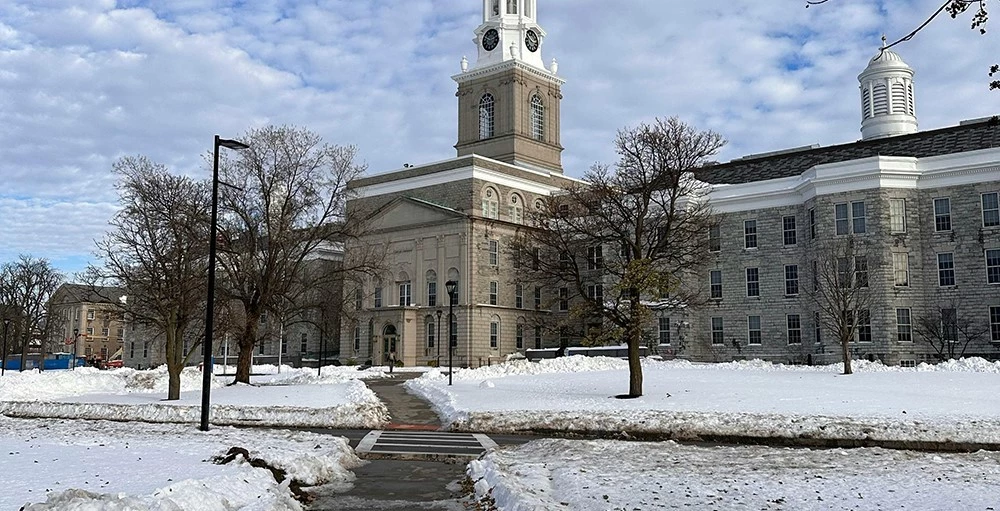For many, college is the first opportunity they have to make their own decisions.
How late to stay up, what to eat for dinner. And of course, how to spend their money.
Students Come Unprepared
Unfortunately, college students often do not prepare to handle their financial destinies, which can cause problems.
Students may accumulate credit card debt or fall behind on payments.
Up to 13% of community college students are homeless, and even more, are struggling to eat.
Throwing students into an expensive undertaking like college without the proper financial education is asking for trouble.
More than half of college students take out student loans to help cover the costs.
Books, tuition, housing, and food are likely things they didn’t need to manage themselves in high school.
But 61% of all students aren’t comfortable with student loans in general. And half of those that have loans aren’t even sure what their payments will be in the future.1
Because they don’t have the tools to handle their finances, three out of four students are concerned about money. Nearly half wouldn’t be able to cover a $400 emergency expense.1
They simply don’t have the knowledge necessary for financial matters. Most students say they learned about finance primarily through their parents or guardians.
But only 61% of students felt they learned what they needed to know.1
This lack of financial literacy has been shown to lead to higher levels of stress, and subsequently to a lower GPA.2
Financial Wellness Programs to the Rescue
Financial wellness programs offered by colleges are here to help, though.
Financial wellness is not just about having enough money to cover expenses. It involves skills like budgeting, investing, and understanding loan terms.
Learning the tools for financial wellness early helps young people manage their student loans and reduce stress. This in turn leads to better academic performance.
One study looked at the grade point average (GPA) differences between two groups of students. One group attended a financial literacy course in their first two years of college. The other group did not. Those that learned about finances graduated with a significantly higher GPA than the others – 3.24 compared to 2.75.3
These educational, financial programs help take some of the stress off of already maxed-out student brains. Financial stress can exhaust the brain’s mental reserves, making it harder to focus on longer-term goals like studying.4
In fact, 35% of college students report they have neglected their academic work due to financial concerns. And 33% have considered dropping out altogether.1
Financial Literacy Predicts Academic Success
Another study showed that a “very satisfactory level of financial literacy may lead to a low level of stress and an excellent academic performance.”
This study used a number of surveys to assess students’ financial knowledge and stress levels.
When compared to their GPAs, the results were clear. The research concluded that financial literacy can significantly predict a student’s academic success.2
Yet another study was conducted at Texas community colleges. This study found that financial literacy programs could help reduce student stress and promote graduation.5
It is no surprise, then, that more and more colleges are adopting financial wellness programs to help support their student populations.
Colleges are more successful when they take an interest in the well-being of their students.
These programs take a holistic approach. They go beyond basic financial skills, aiming to incorporate attitudes, knowledge, and beliefs.1
The best results come from programs that are integrated into the entire college experience.
Schools should make student financial wellness part of an overall goal for the institution.
This can help students increase credit scores, manage credit card debt, and save more.6
All these factors help contribute to lower levels of stress and better academic performance across the board.
Financial wellness programs can turn a below-average student (2.75 GPA) into an above-average student (3.24 GPA).
1 - https://cssl.osu.edu/posts/632320bc-704d-4eef-8bcb-87c83019f2e9/documents/2020-scfw-key-findings-report-combined-accessible.pdf
2 - http://www.aup.edu.ph/alumni/wp-content/uploads/RJ2.pdf
3 - https://digitalcommons.wku.edu/cgi/viewcontent.cgi?article=1139&context=diss
4 - https://www.scientificamerican.com/article/poor-choices-financial/
5 - https://www.tandfonline.com/doi/abs/10.1080/10668926.2016.1179602?journalCode=ucjc20
6 - https://www.chronicle.com/paid-content/inceptia/financial-wellness-programs-help-create-successful-students








